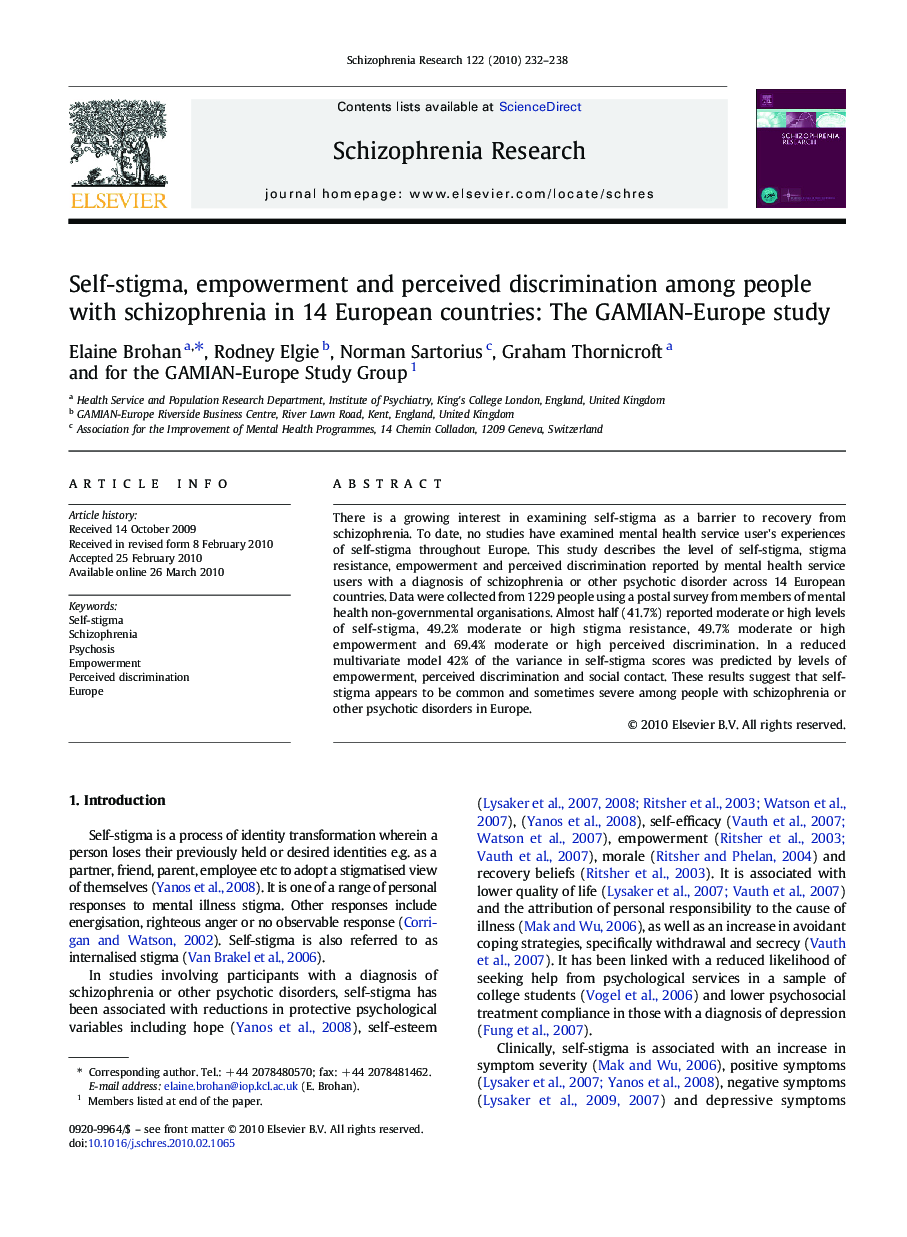| Article ID | Journal | Published Year | Pages | File Type |
|---|---|---|---|---|
| 6828118 | Schizophrenia Research | 2010 | 7 Pages |
Abstract
There is a growing interest in examining self-stigma as a barrier to recovery from schizophrenia. To date, no studies have examined mental health service user's experiences of self-stigma throughout Europe. This study describes the level of self-stigma, stigma resistance, empowerment and perceived discrimination reported by mental health service users with a diagnosis of schizophrenia or other psychotic disorder across 14 European countries. Data were collected from 1229 people using a postal survey from members of mental health non-governmental organisations. Almost half (41.7%) reported moderate or high levels of self-stigma, 49.2% moderate or high stigma resistance, 49.7% moderate or high empowerment and 69.4% moderate or high perceived discrimination. In a reduced multivariate model 42% of the variance in self-stigma scores was predicted by levels of empowerment, perceived discrimination and social contact. These results suggest that self-stigma appears to be common and sometimes severe among people with schizophrenia or other psychotic disorders in Europe.
Related Topics
Life Sciences
Neuroscience
Behavioral Neuroscience
Authors
Elaine Brohan, Rodney Elgie, Norman Sartorius, Graham Thornicroft, for the GAMIAN-Europe Study Group for the GAMIAN-Europe Study Group,
